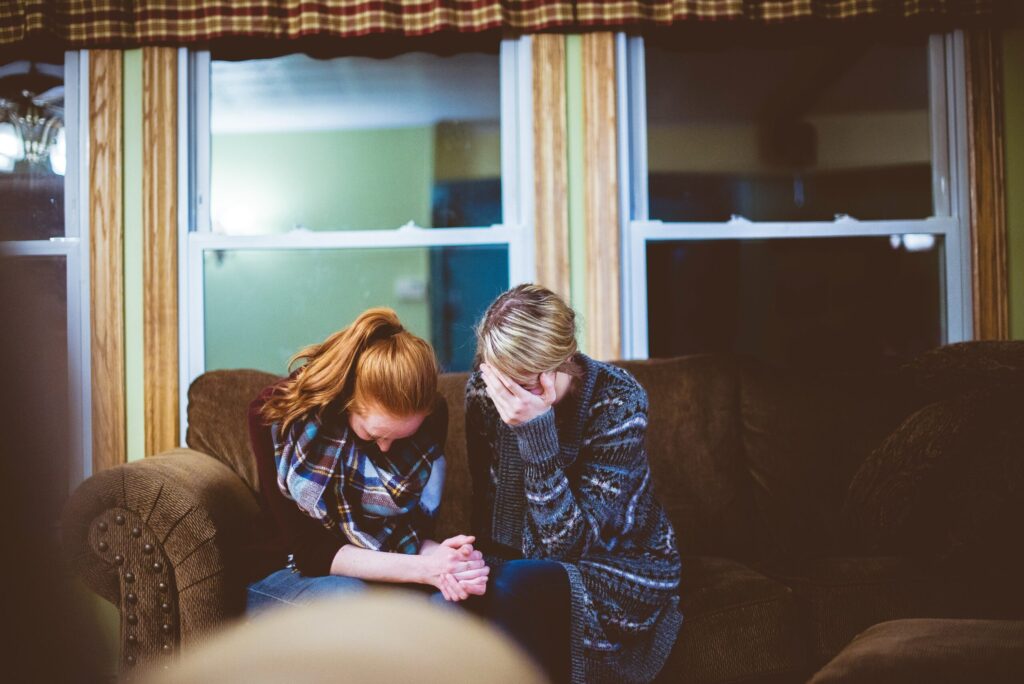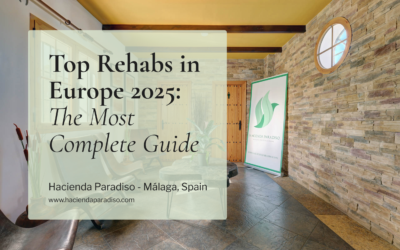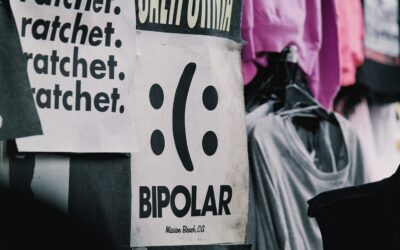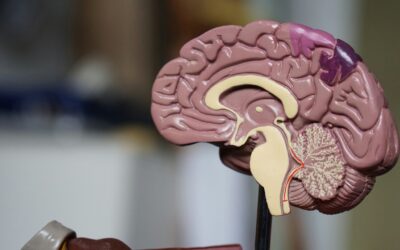Last updated: November, 2025
Supporting a loved one with addiction can feel like walking through fog: you can see the outline of the person you love, but not the path that leads back to them. Addiction has a way of creating distance where there used to be closeness. It reshapes emotions, disrupts communication, and replaces peace with worry.
Many families find themselves living between hope and fear. Hope that the person they love will recover, and fear of what might happen if they don’t. It’s a space filled with uncertainty, where small victories feel fragile and setbacks can feel devastating. Yet beneath it all, there is love: a steady, often quiet force that endures even through exhaustion and pain.
Understanding addiction as an illness, not a failure of character, is where healing begins. Addiction is a complex condition that changes the brain’s chemistry and functioning, affecting motivation, reward, and emotional regulation. It makes people behave in ways that don’t match who they truly are. Recognising this helps families move from anger to compassion, from confusion to clarity, and from helplessness to meaningful action.
At Hacienda Paradiso, recovery is viewed not as an individual effort but as a shared journey: one that restores connection, dignity, and calm. The following guide is designed to help families understand addiction more deeply and support their loved ones with empathy, structure, and balance.

Understanding How Addiction Affects The Brain
Addiction is not simply a matter of willpower. It’s a chronic condition that alters the brain’s circuits related to motivation and self-control. What begins as a way to cope (a drink to relax, a pill to sleep, or a behaviour that brings relief) gradually becomes a pattern that rewires how the brain seeks comfort.
In a healthy brain, the chemical dopamine creates a natural sense of reward when we experience joy, connection, or accomplishment. It encourages us to repeat behaviours that are good for us. But addictive substances and behaviours overstimulate this system. The brain begins to crave that rapid, artificial surge of dopamine, and in doing so, it loses sensitivity to everyday pleasures.
The result is not just physical dependence, but emotional narrowing. The world becomes smaller, revolving around one source of relief. Families often see this before the person does: missed calls, broken plans, excuses that sound familiar but never quite make sense.
Recovery, then, is not about punishment or control. It’s about teaching the brain to find balance again, to reconnect to the natural rewards of life: human connection, creativity, nature, purpose. With time, therapy, and support, the brain can rebuild these pathways. This is where family understanding becomes powerful: it gives the process patience and structure.
Emotional and Behavioural Changes
Addiction doesn’t just change brain chemistry; it alters how a person experiences emotion. The areas of the brain responsible for impulse control and emotional regulation become overstimulated or exhausted. As a result, individuals may act impulsively, withdraw emotionally, or oscillate between guilt and defensiveness.
To those on the outside, this can look like indifference or manipulation. But inside, there’s often deep shame, anxiety, or fear. Many people trapped in addiction are not unaware of what they are doing, they feel powerless to stop.
Families can create an environment that supports regulation and safety by focusing on consistency and calm. This doesn’t mean silence or avoidance; it means communicating in ways that do not escalate fear or guilt. For example, instead of “Why can’t you just stop?”, a phrase like “I know this is difficult, and I’m here when you’re ready to talk” keeps connection open.
Simple, grounding routines (shared meals, walks, quiet conversations) reintroduce structure where addiction has created chaos. Stability is not dramatic, but it is transformative. The brain begins to associate safety with connection, and the nervous system learns that not every moment is a crisis.
How Addiction Affects Families
Addiction affects everyone it touches. Families often become caught in a cycle of tension, secrecy, and emotional exhaustion. The roles within the home can shift dramatically: one person becomes the caretaker, another withdraws, and others alternate between hope and anger.
In many cases, family members begin to live around the addiction: avoiding certain topics, planning their days based on someone else’s mood or behaviour. This constant vigilance, though well-intentioned, can erode trust and create quiet resentment.
It’s common for families to ask themselves what they did wrong or how they could have prevented things from getting this far. But addiction is not born from failure; it’s a condition that thrives on isolation and secrecy. The healing process begins when the family itself starts to recover: learning to express feelings openly, to set healthy limits, and to stop carrying blame that doesn’t belong to them.
Family therapy is often the bridge between chaos and understanding. It allows every member to voice pain without judgment and to learn new ways of relating. Through this process, families rediscover that their role is not to fix the addiction, but to provide stability, love, and accountability that support long-term recovery.

Supporting Without Judgment or Pressure
Families often want to help but don’t know how to do so without adding stress. The key lies in gentle consistency and emotional presence.
Create safety through structure.
Addiction thrives in unpredictability, while recovery flourishes through routine. Predictable rhythms (shared dinners, sleep schedules, regular check-ins) help both the person in recovery and the family feel grounded. Structure communicates safety, showing that love can coexist with boundaries.
Listen without interruption.
Active listening builds trust where fear once lived. Many individuals with addiction expect criticism or disappointment, so when a family member listens with curiosity and empathy instead of accusation, it disarms defensiveness. Phrases like “It sounds like you’re feeling…” or “That must have been difficult” show understanding and invite honesty.
Encourage natural rewards.
Addiction trains the brain to expect pleasure from one source. Recovery restores balance by reintroducing healthy dopamine experiences (exercise, creativity, social connection, mindfulness..). Families can model and share these habits: cooking together, spending time outdoors, or simply laughing again.
Set boundaries that protect everyone.
Boundaries are essential acts of care. They’re not punishments but agreements that keep love from becoming harm. Saying “I will always support your recovery, but I cannot enable your addiction” is a declaration of love with clarity. Boundaries create accountability and emotional safety on both sides.
Celebrate progress, however small.
Recovery is rarely linear. Some days will bring peace, others frustration. But each step forward (attending therapy, reconnecting with family, taking responsibility) deserves recognition. Small victories accumulate into lasting change.
Families who celebrate effort, not perfection, reinforce the belief that change is possible.

Recognising When Professional Help Is Needed
There comes a point when love alone is not enough. When health, safety, or daily life begin to deteriorate, professional help becomes essential. Recognising the signs early allows for intervention before crisis.
Common indicators include:
- Isolation or withdrawal from loved ones
- Mood swings, irritability, or secrecy
- Neglect of work, hygiene, or responsibilities
- Physical symptoms such as fatigue, tremors, or rapid weight changes
- Financial instability or erratic behaviour
When these patterns persist, families should not wait for a “rock bottom” moment. Compassionate intervention, guided by professionals, can reframe the situation before irreversible damage occurs.
Structured rehabilitation offers a combination of medical supervision, therapeutic work, and emotional support that families cannot provide alone. This environment removes external pressures, allowing individuals to focus entirely on healing.
Treatment also helps families recover from the constant stress of living in survival mode. Through education and therapy, relatives learn how to communicate more effectively, support without enabling, and rebuild trust at a sustainable pace.
The Role of Family Therapy
Family therapy is one of the most effective tools in addiction recovery. It brings the system (not just the individual) into alignment. Addiction often thrives in unspoken emotions; therapy gives them words.
Within these sessions, families learn that expressing hurt or anger doesn’t destroy relationships; silence does. They practice listening without fear and setting expectations rooted in respect, not control.
Therapists often guide families through moments of forgiveness and grief. Many relatives carry invisible wounds: disappointment, betrayal, exhaustion. Healing these emotions frees them from resentment and creates space for compassion.
Family therapy also addresses patterns that may unknowingly sustain addiction, such as enabling or avoidance. The goal is not to assign blame but to build awareness. With this awareness, families can support recovery more effectively by responding with clarity instead of reaction.
When families participate consistently, outcomes improve dramatically. Relapse risk decreases, communication stabilises, and both sides begin to experience hope not as an idea, but as a daily feeling.

Building Long-Term Recovery Together
Recovery doesn’t end when treatment does. It’s a continuous process of rediscovering balance, meaning, and trust. Families remain central to this process.
In the early stages, consistency matters most. Maintaining predictable routines, honest communication, and emotional boundaries provides a stable foundation. Over time, shared activities (volunteering, cooking, travelling, or reconnecting with old friends) help rebuild identity and joy.
It’s important to remember that setbacks are part of recovery, not the end of it. Relapse, emotional burnout, or temporary withdrawal can all occur. When they do, families who respond with empathy rather than punishment help transform a crisis into a learning moment.
Long-term healing requires patience, honesty, and continued connection. Support groups, ongoing therapy, and family education programmes can strengthen resilience. Families that stay engaged in these processes often find that they themselves grow in ways they never expected: more aware, more compassionate, and more united.
Healing is not about returning to who you were before addiction; it’s about discovering who you can become after it.
Hacienda Paradiso: Where Healing Feels Like Home
At Hacienda Paradiso, recovery means more than overcoming addiction: it’s about restoring calm, trust, and connection within families. Surrounded by nature in the hills of Málaga, our team combines therapy, mindfulness, and compassionate guidance to help healing feel safe again.
Here, recovery is a shared journey. Families learn to communicate with empathy, rebuild stability, and rediscover peace. Together.

Frequently Asked Questions: Supporting a Loved One with Addiction
Families can best support recovery by offering empathy while setting firm, respectful boundaries. True care means helping without protecting the addiction or removing its natural consequences.
For example, refusing to provide money or excuses for missed work helps the individual face reality in a safe but accountable way. Support should focus on emotional connection, structure, and encouragement toward professional treatment.
Families can replace judgment with understanding by learning about addiction as a brain condition, not a choice. Regular communication, family therapy, and shared education sessions help relatives stay aligned and reduce guilt or conflict.
Over time, this balanced approach teaches responsibility while maintaining compassion, allowing recovery to grow through trust, not control.
When someone refuses help, the goal is to stay connected, not confrontational. Pressuring or shaming often deepens resistance; calm, caring persistence works better.
Families should choose peaceful moments to talk, focusing on observations rather than accusations (“I’ve noticed you’ve been more tired lately, and I’m worried”). This language creates safety instead of defensiveness.
If refusal continues, a professional intervention can guide the process with structure and empathy. Therapists help families communicate effectively and outline the real impact of addiction without anger.
Even when the person isn’t ready, families can begin their own therapy or support groups to learn boundaries and self-care. Change often begins when the environment around the person becomes stable and compassionate.
Family therapy strengthens recovery by improving communication, rebuilding trust, and reducing stress within the home. Healing together creates stability that supports long-term change.
In therapy, relatives learn to listen without interrupting, express feelings calmly, and replace blame with empathy. These skills repair emotional disconnection and allow everyone to feel heard.
Therapists also help identify unhealthy patterns (such as overprotection or silence) that may maintain tension. Through guided sessions, families practice setting healthy boundaries and supporting progress at home.
When families participate actively, relapse risks decrease, motivation rises, and the household becomes a calmer, safer space for growth. Healing the family system is often the key to sustaining individual recovery.
Families cope best by recognising that their wellbeing matters too. Caring for yourself is not neglect, it is necessary to stay strong and compassionate.
Addiction brings guilt, anger, and fatigue; these emotions need space to be acknowledged. Healthy coping begins with small, consistent actions: rest, exercise, journaling, or joining a support group.
Therapy for family members can also provide tools to manage anxiety and communication stress. Sharing experiences with others in similar situations helps normalise emotions and prevent isolation.
By taking care of their own emotional health, relatives can respond with calm instead of frustration. A grounded, balanced family environment becomes one of the most powerful supports in recovery.
Hacienda Paradiso blends professional therapy with the healing presence of nature, creating a serene space for both individuals and families to recover together. Recovery here extends beyond detox, it focuses on rebuilding relationships and emotional safety.
Each programme includes family involvement through guided sessions, mindfulness practices, and shared routines that restore communication and trust. The natural setting in Málaga encourages reflection, calm, and reconnection.
By integrating clinical care with a compassionate, eco-conscious environment, families experience recovery as a shared journey; one that renews understanding, respect, and lasting balance.
Many families describe leaving with practical tools and a sense of peace, feeling more united and hopeful than they imagined possible.










